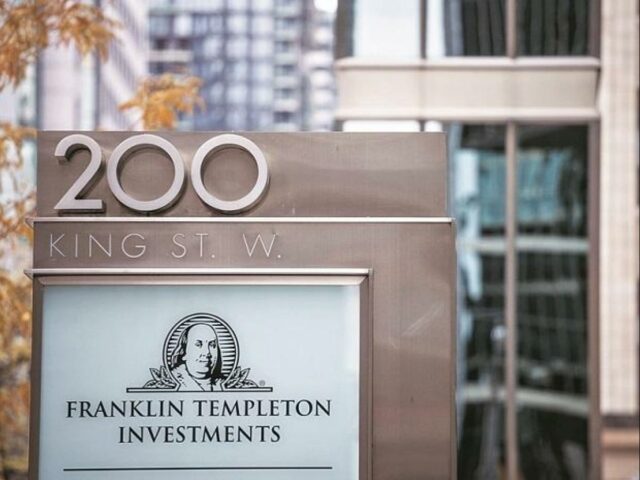The economy is going through a volatile situation, and the credit goes to the pandemic that the world is currently facing. The COVID-19 pandemic, which knocked the doors of the Indian economy in the latter days of March 2020 has left several industries scrambling for making even.
The share market, though has seen tremendous growth, has also seen great falls during the past year, which makes the situation riskier than ever.
Recently, there has been a shocking development in the mutual funds market with Franklin Templeton Investments deciding to leave it. Let’s see what happened.
What Happened?
Franklin Templeton is the 9th largest mutual fund house in India managing assets worth Rs. 1.16 lakh crores. However lately it has been in news for winding up six of its debt mutual fund schemes with immediate effect.
The coronavirus pandemic followed by the lockdown has created risk aversion amongst investors and currently, there are no takers for low-rated and unrated papers in the market.

When an investor redeems the funds, the house ends up selling good quality liquid paper and increasing concentration risk in the scheme. This is not in the interest of the remaining unitholders. That is why the current winding up is in news and has been taken up by the Supreme Court of India.
The six funds that are being wound up by the company are Franklin Low Duration, Franklin Dynamic Accurate, Franklin Credit Risk fund, Franklin Short Term Income, Franklin Ultra Short Bond, Franklin Income Opportunities Fund. Cumulatively, these six funds manage assets of over Rs. 26,000 crores.
For investments in the share market, several people are looking only at the risk factor, because as they say, the higher the risk, the higher the return. However, the common people with limited earning are eager to invest in low risk, fixed-return schemes which are linked to the share market. Debt funds are one such scheme.
However, the debt funds might not be sailing through as one of India’s largest mutual fund houses, Franklin Templeton has decided to wind up several debt funds, as mentioned above.
For understanding the entire situation, we need to understand what a debt fund is. Investing money in a debt fund is equivalent to lending money to the entity issuing such an instrument.
A debt fund, once created, invests the money in fixed-interest generating securities like corporate bonds, government securities, commercial papers, treasury bills and other market instruments which garner a fixed rate of interest over the amount invested.
The basic aim behind investing in debt funds is to earn a steady income through interest and capital appreciation.
Read Also: How To Start Investing In Mutual Funds On A Monthly Basis?
Winding up of a mutual fund is always bad news for the investors, as it involves the sale of all the fund’s assets and the distribution of the proceeds received to the unitholders.
The entire exercise comes across as more of a forceful sale from the point of view of the investors, and in the worst case, the investor might have to suffer a loss while paying the capital gains tax as well.
On 23rd April 2020, the six debt schemes of Franklin Templeton Mutual Fund, holding assets worth Rs. 26,000 crore were frozen after they faced unprecedented redemptions.
Before the COVID-19 crisis, the schemes were known for investing in riskier debts to garner higher returns, however, with the pandemic, the wave of redemptions hit the schemes as investors started getting worried about defaults with the falling economy.
The schemes initially resorted to borrowing money to meet the redemptions, but once it wasn’t sufficient, the fund house decided to freeze the debt schemes with the eventual aim of winding them up.

Taking up the matter, the Supreme Court in its landmark decision provided some relief to the investors. The apex court ruled that the mutual fund trustees are required to seek the consent of the unitholders in the event of the winding-up of a mutual fund scheme.
While holding in deciding the matter, the judges of the Supreme Court stated that denying unitholders say weakens their role in the entire scheme and their right to participate. Unitholders exercise informed choice and discretion when they invest in or redeem the units.
Therefore, the trustees have a responsibility and should envision the investors as perceived and prudent and be transparent about the statements, reports etc. This enables the investors to make a conscious decision and continue their support or withdraw it from the mutual fund.
While the fiasco continues to play out with payments happening to unitholders in instalments, the fiasco caused by the Franklin Templeton fund house should be considered by the economic and financial experts, and lessons should be taken from it.
Efforts should be made to increase market liquidity and more incentives by the RBI should be given to help these sinking debt funds.
Image Sources: Google Images
Sources: Mint, Economic Times, Business Standard
Find The Blogger At: @innocentlysane
This Post Is Tagged Under: Franklin Templeton, supreme court, Shareholders, shares, debt, debt funds, Supreme Court, majority shareholders, mutual funds, SEBI, securities, consent, notice, winding up
Other Recommendations:
In Pics: A Millennial Simplifies Scary Financial Terms Like Equity, Mutual Funds & Stock


































